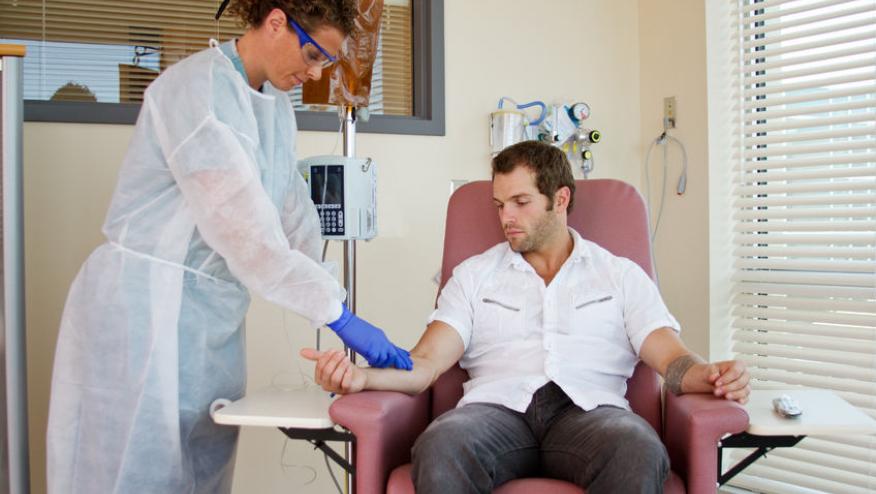Bifunctional B-cell Targeted Therapy in IgG4-related Disease Save

A novel B-cell depletion trial, using obexelimab (a bifunctional, monoclonal antibody that binds CD19 and Fc gamma receptor IIb), has shown efficacy and safety in patients with active IgG4-related disease.
Lancet Rheumatology has published the results of an open-label, single-arm, phase 2 pilot trial from the Massachusetts General Hospital wherein they used obexelimab to inhibit B cells, plasmablasts, and CD19-expressing plasma cells.
Adults with active IgG4-related disease (IgG4-related disease responder index score of 3 or more) were given 5 mg/kg of obexelimab intravenously every 2 weeks for 24 weeks. The primary endpoint was the proportion of patients with a decrease of 2 or more from baseline in the IgG4-related disease responder index at day 169 (ie, primary responders).
Obexelimab produced rapid, strong, and sustained clinical improvement, including complete remission (IgG4-RD Responder Index score of 0), in most patients with active IgG4-RD. Treatment resulted in reduced circulating B cells, including plasmablasts, with no evidence of cytolysis. The prolonged effect of obexelimab, even after circulating B cells returned to near normal levels, suggests a drug effect in tissue (lymphoid organs or bone marrow) that may be prolonged.
There were few adverse events, most of which were mild.
To date, 198 subjects have been treated with obexelimab; demonstrating the same effects noted above.The drug is being developed for autoimmune indications










If you are a health practitioner, you may Login/Register to comment.
Due to the nature of these comment forums, only health practitioners are allowed to comment at this time.